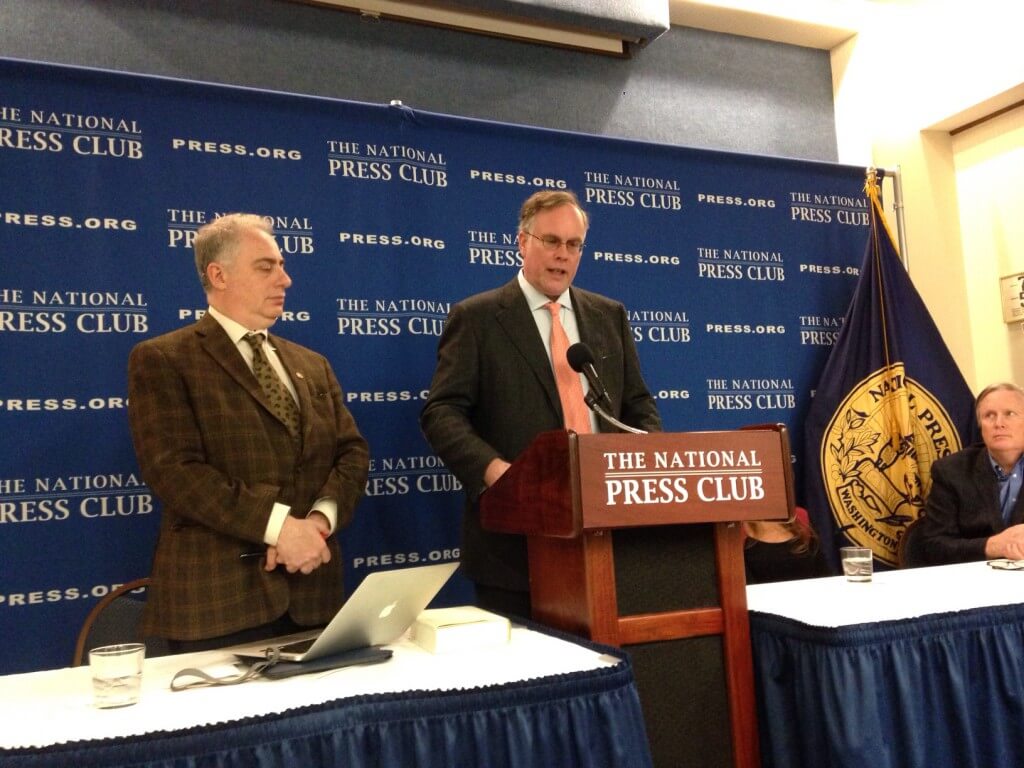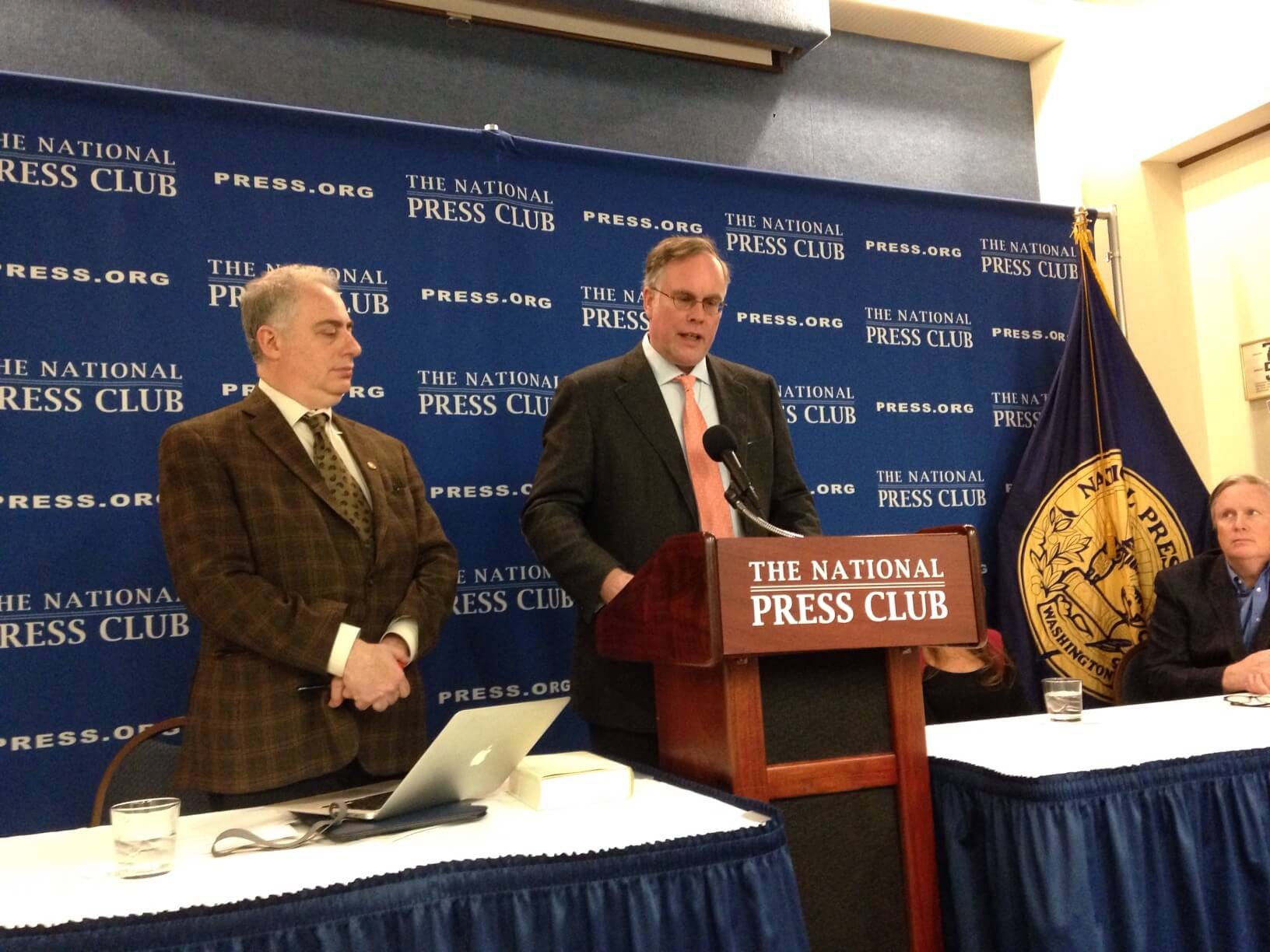
John Robison, who was diagnosed with autism at age 40, said that presidential candidates need to start talking to autism advocacy and support groups. (Photo: Celena Chong/Medill News Service)
WASHINGTON – Hillary Clinton has a detailed policy plan to address the lack of services available for autistic adults, and other candidates should follow her lead, said John Robison, an autism activist, author and professor, on Wednesday.
Clinton’s wide-ranging autism initiative supports safety and legal protection, services, treatment and more. It also addresses issues of bullying and providing employment to those transitioning to adulthood.
There are about 3.5 million Americans with autism spectrum disorder and 1 in 68 kids were diagnosed with ASD in 2010 according to the CDC. Although billions are being funneled to autism education support for children, that much-needed aid “drops off at about 21 years of age” when most people are no longer enrolled in school, Robison said.
“If our health insurance allows four, five, six visits to a counselor, for someone who has a challenge in autism like going through a job interview, that thing which we have to do to sustain independent living can’t be solved by visit number six,” Robison said.
“Hillary Clinton is the first and only candidate that has ever presented and addressed autism in policy initiatives,” Caren Zucker, an autism researcher said at the panel.
While the president of the largest autism self-advocacy network, Autism Speaks, endorsed Clinton’s plan, given the nature of the “factionalized” autism community, there is not necessarily a substantial leaning towards Clinton across the board, Steve Silberman, a San Francisco-based author on autism said.
“I saw some criticism about applied behavioral analysis — and ABA is highly controversial within the autistic community, which seeks to ‘normalize’ autism,” Silberman said.
ABA has been under fire for trying to “normalize” autism by using rewards to transform autistic behavior and teach new skills.
While Sen. Bernie Sanders has sponsored legislation calling for $45 million in autism insurance coverage, Republican presidential hopeful Donald Trump suggested that autism stems from vaccines, a statement that outraged autism communities, according to Robison. There hasn’t been a peep from other candidates in the race, he said.
“This doesn’t mean other candidates can’t follow the model set out by Hillary,” said Silberman. “I heard (Republican John) Kasich talking about Medicaid expansion. …This would be good for people with disabilities.”
Candidates can drive up waves of support by first, mentioning autism at the podium, and by developing initiatives to improve tech which can enable communication for autistic people who cannot speak, according to Silberman. They should mention some health problems autistic people struggle with across the spectrum, including seizures, gastrointestinal distress and sensory sensitivity in the workplace.
“They can focus on developing mentorship programs so that adults can help young autistic people because they understand what [experiences] are like from the inside, which is another promising frontier,” Silberman said.
While the president of the largest autism self-advocacy network, Autism Speaks, endorsed Clinton’s plan, Silberman said given the nature of the “factionalized” autism community, there is not necessarily a substantial leaning towards Clinton across the board.
“I saw some criticism about applied behavioral analysis — and ABA is highly controversial within the autistic community, which seeks to ‘normalize’ autism,” Silberman said.
ABA has been under fire for trying to “normalize” autism by using rewards to transform autistic behavior and teach new skills.
Robison has been a neurodiversity advocate ever since he was diagnosed with autism at age 40 — and instead of despair, he felt “liberated and empowered”. From being told growing up that he was “defiant, a trickster, psychopath,” Robison became an activist, author, and professor at the College of William and Mary.
Some people on what Robison calls the autistic “spectrum” have found success, but others cannot speak, or dress themselves, and could be killed by a car if they wandered alone outside, he said.
“Just as there’s racial diversity and other human traits, there is neurodiversity. Autistic people like me are starting to speak out more and more today,” Robison said at the National Press Club. “But what have the 2016 candidates done to bring us into the conversation?”


